Spain Re-Established as a World Cup Favorite After Shocking 2014 Exit

After failing dismally in their last two major tournament outings - exiting at the group stage in the World Cup in 2014 and in the last 16 at Euro 2016 - Spain looks like it os returning to its near imperious best heading into Russia 2018.
Under the stewardship of Julen Lopetegui, La Roja seem to have finally solved the issue that has plagued them since their Euro 2012 triumph - finding the right blend of young and old. The hitherto relied-upon veterans such as Cesc Fabregas, Pedro and Javi Martinez have now been replaced with the exuberance of Isco, Marco Asensio and Saul Niguez.
And yet, they still retain six survivors from the triumph of 2010. The backbone of Pepe Reina, Gerard Pique, Sergio Ramos, Sergio Busquets, David Silva and Andres Iniesta that runs through the team has finally formed a fruitful partnership with their youthful counterparts - a worrying prospect for any opponent. Here's what you need to know about Spain entering the World Cup.
How They Qualified
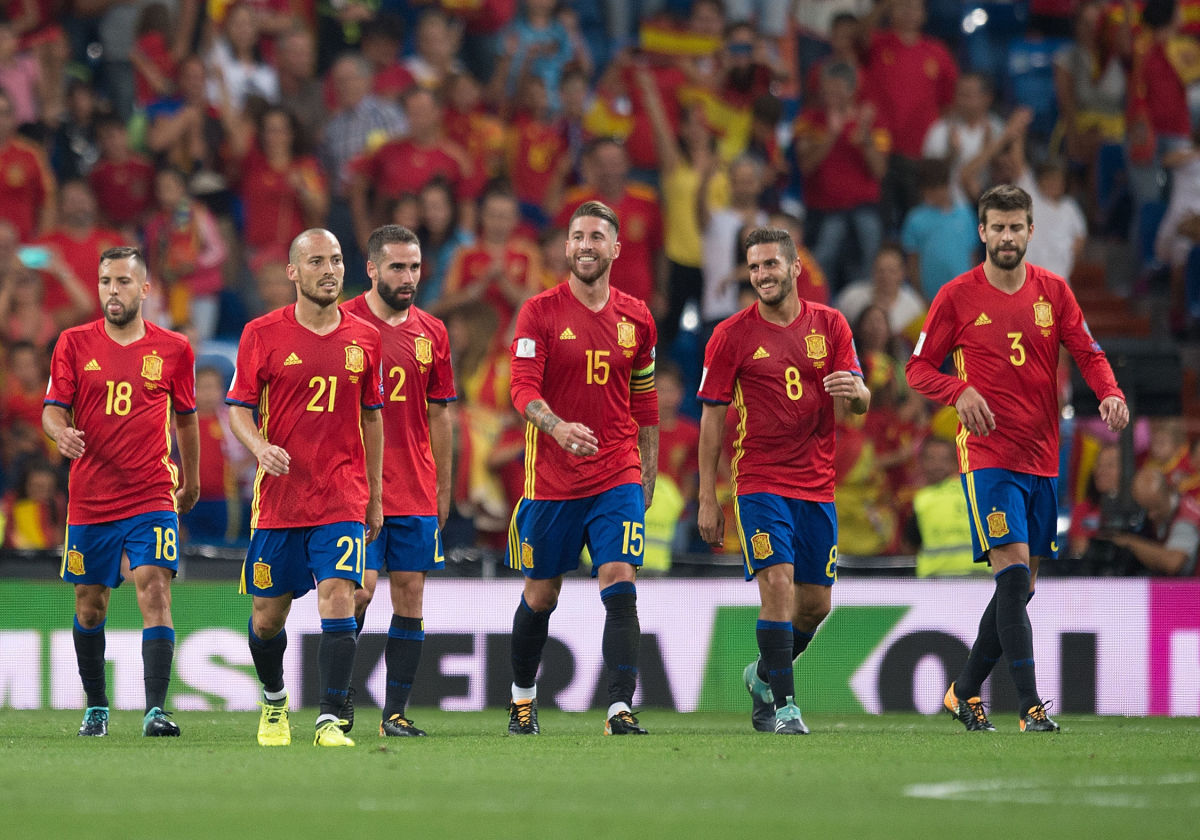
In a qualifying group alongside Italy, Albania, Israel, Liechtenstein and Macedonia, Spain plowed through the competition. With nine wins and one draw, it remained unbeaten throughout the campaign, scoring 36 goals and conceding just three.
Indeed, with four players sharing top-scorer honors with five goals, Spain proved it had a veritable goal threat across the pitch. After the cagey draw with Italy in their first encounter, the Spaniards showed their newfound edge in the reverse fixture. Running out 3-0 winners, it was a complete performance that reaffirmed their status as a major force in international football.
Group Stage Games
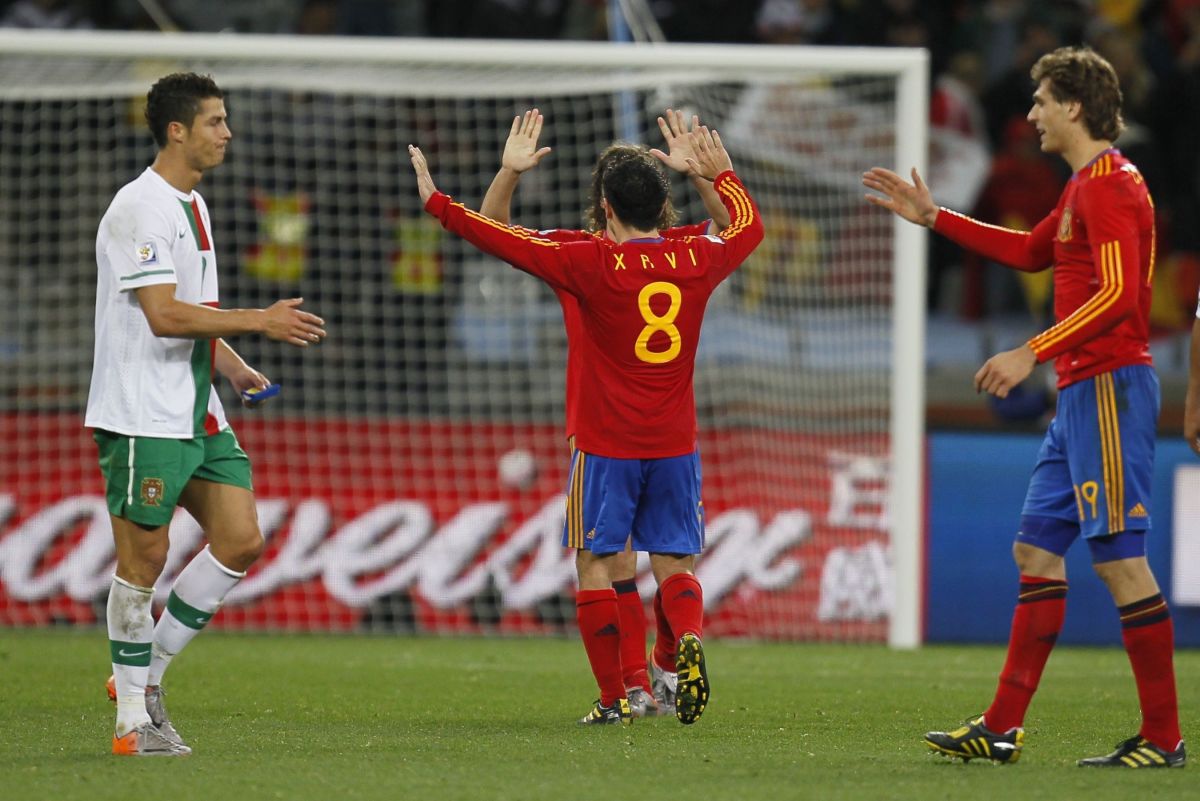
Group B will see the 2010 World Cup champs square off against Morocco, Iran and Portugal. Naturally, their first clash of the tournament against Portugal at the Fisht Olympic Stadium in Sochi, will be the most important.
The geographical neighbors have faced each other at two of the last four major tournaments, with the Spaniards coming out on top in both of these tightly fought affairs. While Spain will go into the game as favorites, the last thing Portugal, the Euro 2016 champion, will be is afraid of its bordering rival.
Meanwhile, Morocco should not be underestimated as the dark horse to upset the established apple cart. The Atlas Lions showed their credentials by overcoming Ivory Coast in qualification, and with Juventus's Mehdi Benatia, Bundesliga rookie of the year Amine Harit and Champions League winner Achraf Hakimi, they have the players to threaten their high-class adversaries.
Possible Route to the Final
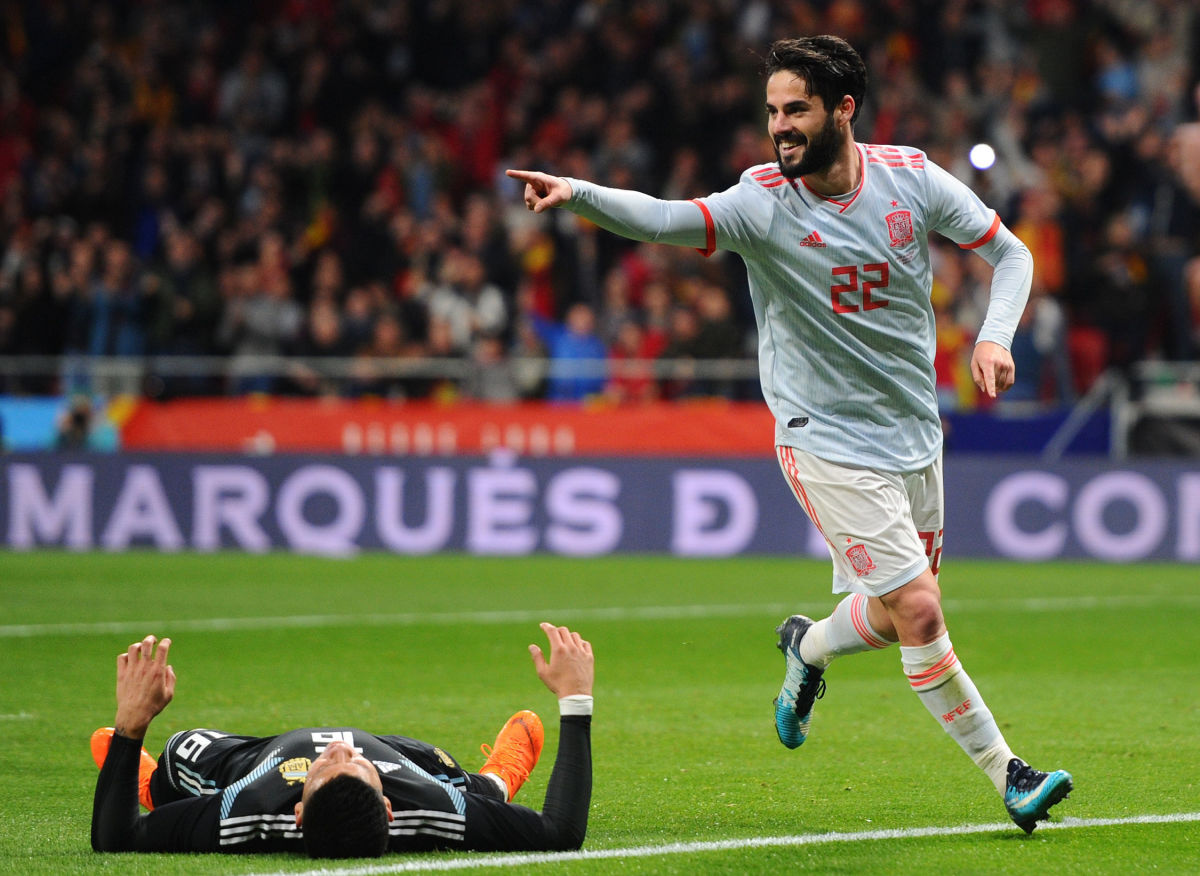
Evidently, the fate of their path to glory will most likely rest on that opening game, and should Spain come through as group winner as expected, it would face the runner-up of Group A.
This would mean facing one of Russia, Saudi Arabia or Egypt in the last 16 (presuming Uruguay tops the group). If we assume that, a potential quarterfinal clash would be against the winner of the last-16 match between the winner of Group D and the runner up of Group C.
This could be Argentina and Denmark, respectively. If we presume Argentina prevails, this would set up a quarterfinal with a team Spain beat 6-1 (admittedly without Lionel Messi) in March.
If it all goes to form, Spain's semifinal opponent would be Germany, setting up a repeat of the 2010 encounter at the same stage.
Squad
🚨 OFICIAL | 46 millones de ilusiones en sus botas, en sus manos... ¡¡ESTOS SON #NUESTROS23!!
— Selección Española Masculina de Fútbol (@SEFutbol) May 21, 2018
🔁 ¡RT PARA APOYARNOS! pic.twitter.com/XBx0e4uOcB
Goalkeepers: David De Gea (Manchester United), Pepe Reina (Napoli), Kepa Arrizabalaga (Athletic Bilbao)
Defenders: Jordi Alba (Barcelona), Cesar Azpilicueta (Chelsea), Nacho Monreal (Arsenal), Dani Carvajal (Real Madrid), Nacho Fernandez (Real Madrid), Gerard Pique (Barcelona), Sergio Ramos (Real Madrid), Alvaro Odriozola (Real Sociedad)
Midfielders: Thiago Alcantara (Bayern Munich), Sergio Busquets (Barcelona), Andres Iniesta (Barcelona), Koke (Atletico Madrid), Saul Niguez (Atletico Madrid), Marco Asensio (Real Madrid), David Silva (Manchester City), Lucas Vazquez (Real Madrid), Isco (Real Madrid)
Forwards: Iago Aspas (Celta Vigo), Rodrigo (Valencia), Diego Costa (Atletico Madrid)
Predicted Lineup
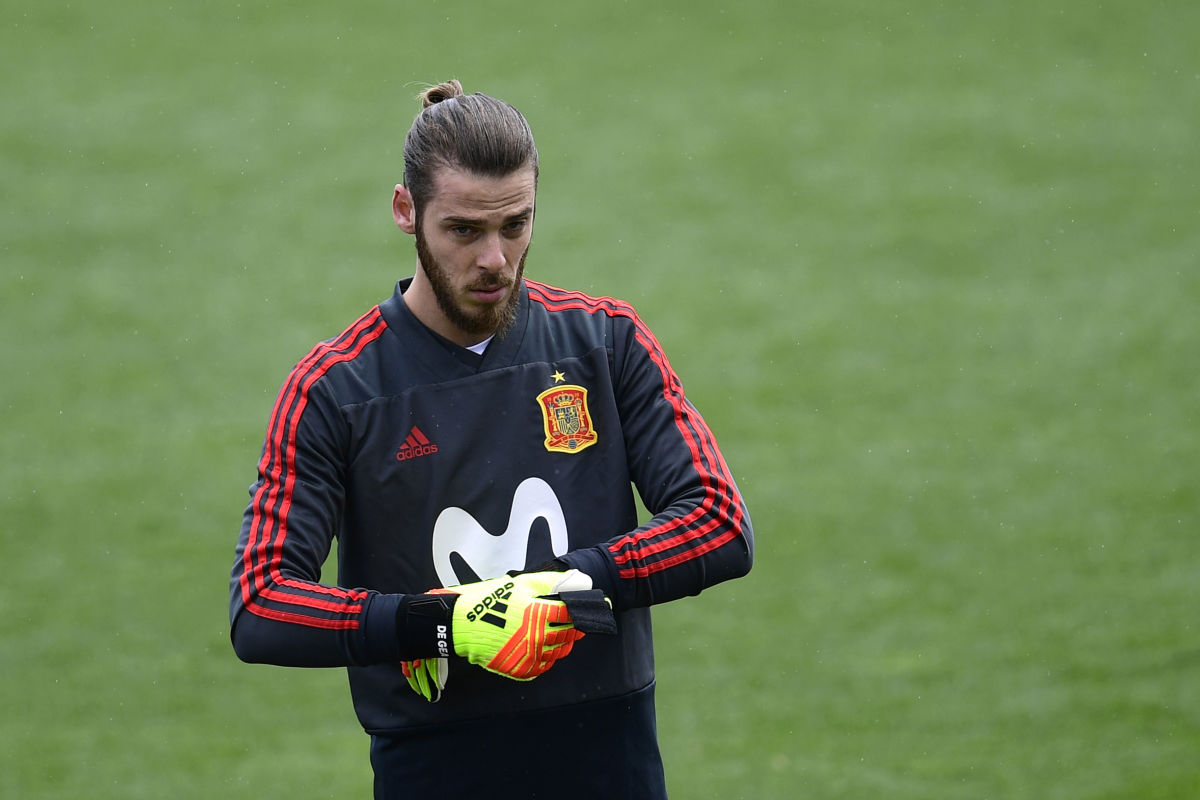
(4-3-3) De Gea; Alba, Ramos, Pique, Carvajal (if fit); Iniesta, Busquets, Silva; Asensio, Costa, Isco
Outlook
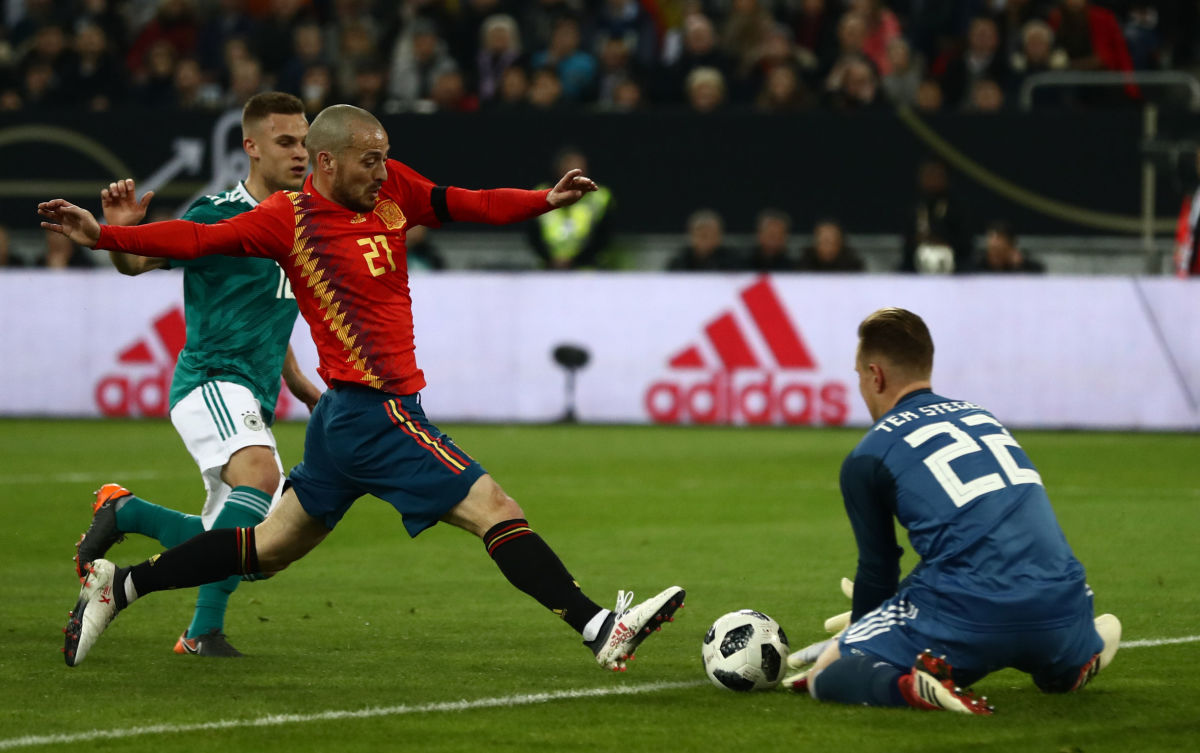
Having just been faced with choosing three players to start in that midfield, it's hard to now predict anything other than success for La Furia Roja. The 6-1 demolition of Argentina showed their overabundance of attacking quality, and in David De Gea they possess the best goalkeeper in world football right now.
Indeed, in that vein, they also seem to have the most leaders of any team at the competition; De Gea, Ramos, Pique, Iniesta, Busquets and Costa are all totemic figures at the club level, for a variety of reasons.
Even so, their major tournament mentality remains a question mark. Although, as alluded to, they are in better shape than in 2016 and 2014, they were still tipped for great things then before it all kicked off.
You would expect them to reach the semifinals, where a presumed encounter with Germany will be anyone's to call. Despite arguably possessing the stronger starting XI, the Germans' notorious and plentiful mental resilience could easily outweigh that quality.
